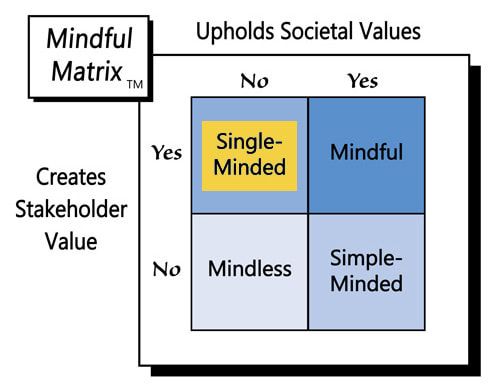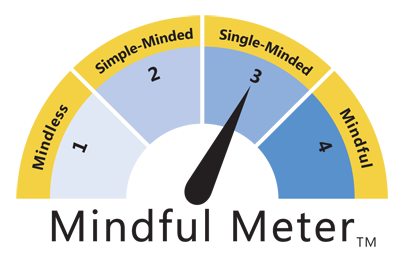E*Trade bills itself as “the original place to invest online” and “the first to give Main Street the chance to trade like Wall Street.” The company has become well-known for empowering ordinary people to trade like professional stockbrokers. Instead of paying costly commissions, individuals who open E*Trade accounts put down just $6.95 per trade of stocks, bonds, and exchange-traded funds (ETFs), and that fee drops to just $4.95 after 30 trades in a given quarter.
Do E*Trade and similar on-line trading platforms (e.g., Ameritrade and Scott Trade) work? They can, if you know what you’re doing. Online trading is much like do-it-yourself (DIY) home projects. Getting the tools to renovate your own kitchen is easy; using them properly is the hard part. Some, however, have been very successful using online trading tools, like the New Jersey high school student who turned $10,000 into $300,000 in about a year, by buying and selling on E*Trade.
This information provides an important backdrop for E*Trade’s new advertising campaign, as each spot features an unambiguous attempt to pit poor against wealthy. The commercials entice the “have nots” to long for the lifestyle of the “haves.”
For instance, in one commercial a young cubicle-dweller gets blown-off by his much more affluent boss, which launches the young office worker into imagining the extraordinary lives of the exceptionally well-to-do: lounging around lavish pools, hitting golf balls off yachts, doing donuts in super cars, feeding exotic pets, waterskiing behind helicopters, having food fights with expensive edibles. A music bed of “If I were a rich man” from Fiddler on the Roof plays beneath these and several similar clips, all culminating with an arousing call to action: “Don’t get mad, get E*Trade.”
The campaign’s other spots feature different video footage and music but suggest the same problem/solution: Your life is lacking because you don’t have what the rich have, but you can get it all with E*Trade.
What’s been the reaction to E*Trade’s campaign? Adweek gave it the designation of “Ad of the Day” for June 19, 2017, describing the ads as “remarkable,” while adding that the company “stokes rage at the 1%.”
Fast Company’s take was more critical: “By using opulence to sell its investment services, the online broker patches together a plutocratic vision of the American dream, ignoring how entrenched inequality is–and how much more difficult it is to overcome.”
In addition, CNET succinctly summarized the campaign’s ironic prescription: “The rich are awful, so use ETrade to become one of them. That seems to be the logic behind the company's new ad campaign.”
I tend to agree with these analyses and draw my own conclusion about the campaign’s mindfulness through a combination of these points and several new ones. Here are the five unfortunate outcomes I believe E*Trade’s ads inspire:
1. Unrealistic expectations. Certainly people can go from rags to riches by trading stocks, but how likely is it to happen? Making a fortune in the stock market requires considerable skill and some luck—much more than just opening an online account.
2. Envy: Benchmarking helps businesses get better by showing them how they might improve their products and processes. Personal comparisons, however, are often problematic, especially when they involve wishing for what others have.
3. Terminal Materialism: Money isn’t inherently bad; it depends on what one does with it. Many of its uses in the E*Trade ads, however, suggest owning for the sake of owning, vs. buying practical things (instrumental materialism), or using money to help others, e.g., paying for education, creating jobs.
4. Poor Stewardship: Beyond being impractical, much of the behavior the campaign glamorizes is overindulgent and outright wasteful.
5. Inaccurate Perceptions: While some extremely rich people live lives of ridiculous luxury, most are not so crass and careless with their spending. The way they became wealthy was not by being frivolous but frugal. Also, many use their money in ways that benefit others.
Against these points, some may argue that the ads are puffery, i.e., extreme exaggerations meant to be funny and not taken seriously. While some of the scenes are over-the-top, e.g., the all-out food fight among elites, most of the cuts are realistic and certainly could happen, if they haven’t already. For instance, a Google search of “helicopter water skiing” produces over a million hits, including a variety of real pictures and the story of a father who towed his son on water skis with a copter, to the chagrin of others.
Will the E*Trade ads be effective? Probably. As mentioned at the onset, the desire to emulate others, especially in terms of their possessions, is a very powerful one. Consequently, E*Trade’s appeal to become one of the very rich will strike a nerve with many, and the oversimplification of achieving the dream will help induce people to try online trading. As suggested above, however, the campaign rests on a foundation of deception, disrespect, and excess, among other indiscretions, which results in E*Trade earning this return: “Single-Minded Marketing.”
Learn more about the Mindful Matrix and Mindful Meter.
Check out Mindful Marketing Ads and Vote your Mind!




 RSS Feed
RSS Feed